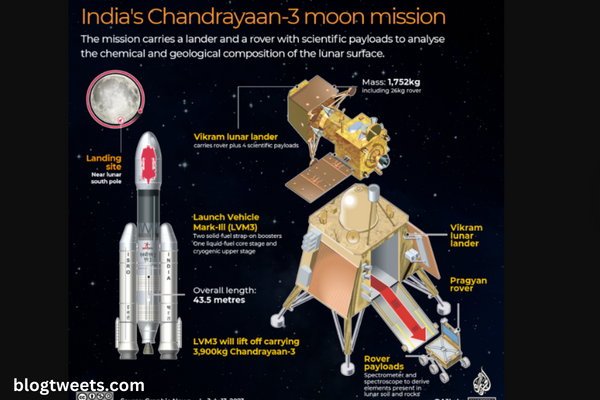China has an advantage in the Saudi-Iran agreement

Soumen Ray, a former Indian ambassador and high commissioner who has worked extensively in the Gulf, West Asia, and Eastern and Southern African countries, wrote the article.
Riyadh severed diplomatic ties with Tehran in 2016 after Iranian protesters attacked Saudi diplomatic missions in Iran in response to the Saudi authorities’ execution of revered Shia cleric Nimr al-Nimr, who was sentenced to death by a Saudi special court on charges of seeking ‘foreign meddling’ in Saudi Arabia, ‘disobeying’ its rulers, and taking up arms against security forces.
After seven years, the two countries have signed a relatively limited agreement regarding the reopening of embassies in each other’s capitals, the resumption of trade relations, and security from attacks. These steps forward are necessary to improve bilateral economic relations and reduce tensions to some extent, but they are insufficient to resolve their ideological and political differences, which have been central to their long-standing rivalry.
For the last four decades, Saudi Arabia and Iran have competed to expand their spheres of influence in the Muslim world. The Shi’ia-Sunni divide and Iran’s refusal to accept the moral authority of the “upstart” Saudi monarchy to rule the holy land of Islam are at the heart of their silent war.
However, in order to maintain power, they must listen to the voices of a large number of their countries’ citizens. Iranians and Saudis, like other peoples, naturally want their leaders to focus on domestic affairs, pursuing harmony, granting at least some democratic rights, and ensuring the welfare of their own people at home, rather than fomenting anarchy in Syria, Iraq, Lebanon, and Yemen, isolating Qatar, and destabilizing Lebanon. These proxy wars, which have sectarian overtones, have crippled the sponsors’ economies, harmed their societies, and jeopardized their own security.
Saudi Arabia’s pragmatic de facto young ruler has realized, albeit late, the futility of continuing this state policy. The war in Yemen is not only draining their coffers; the Iranian-backed Huthis are now inflicting massive losses at their oil facilities, and with no clear end in sight, a face-saving exit must be found. Friendship with Israel cannot be maintained, especially with the arrival of a far-right government there. The Saudis did not join the Abraham Accord because Israel has not yet officially accepted the “two-State” solution, which is a Saudi precondition for normalizing relations with Israel. And the new Israeli government has stated unequivocally that it believes in “one State.”
It is true that Israel is courting Saudi Arabia, and there have been subtler signs of potential cooperation such as Saudis allowing Israel to use its airspace for international flights, an unofficial and unannounced visit by the Israeli prime minister to Riyadh, and so on. But, listening to the Arab street, they had to make it clear to the Israelis that they cannot take Saudi support for military action against any country in the region, including Iran, for granted.
The Saudi ruler is also aware that any rapprochement with Iran will undoubtedly enrage the US, which has been attempting to expand the Abraham Accords by including Saudi Arabia in it in order to impose a new nuclear deal on Iran through sanctions and regional pressure. At the same time that Saudi Arabia is almost entirely reliant on the United States for defense, the Crown Prince wishes to pursue a hybrid policy similar to that of the United Arab Emirates (UAE). Saudi Arabia can protect its own interests first and foremost through this hybrid policy.
In terms of Iran, it is under enormous pressure from both within and without. The long period of massive countrywide protests against the death of a young girl, Mahasa Amini, in police custody has shaken their political structure, economic sanctions have shattered their economy, continuous pressure as well as threat from the IAEA, the EU, and of course, the US to stop enriching uranium, oil exports falling to drops, supporting wars/political unrest in Yemen, Syria, and Lebanon draining the remaining money from their national kitty, placed the ruling Su Iran desperately needs a way out of this bind.
Under these conditions, Saudi Arabia and Iran agreed in principle to end a conflict that has been costly and toxic for both countries, as well as disastrous for West Asia. Iraq agreed to midwife both parties and provide all necessary support, facilities, and security. Since 2022, the two countries’ chief negotiators have been Amir Saeed Iravani, former deputy secretary of Iran’s Supreme National Security Council (SNSC) and now Iran’s UN ambassador, and Khalid bin Ali al-Humaidan, director general of the Saudi General Intelligence Directorate. Iran’s delegation included experts from the intelligence and foreign ministries, as well as the SNSC. Following the fifth round, both parties agreed on a general roadmap for normalizing relations. They were optimistic that their cooperation agreement would be finalized soon. However, the political unrest that followed was deemed unsuitable for further negotiations in Baghdad. Despite the fact that all stakeholders in the region and abroad were aware of these developments, no public announcement was made by the parties involved in the peace negotiations.
There was a frantic search for a new location to continue their discussions. Except for China, which has excellent political and economic relations with both Saudi Arabia and Iran, no mutually accepted trustworthy country was found. China also saw a significant opportunity to enter the Middle East, which it had been eyeing for some time. The US’s political standing in the region is dwindling, and Russia is preoccupied with the conflict in Ukraine, making it difficult to assist any friend reasonably. As a result, there was a vacuum. Why not take advantage of this? As a result, it sought to play matchmaker and fill the strategic void. If it succeeds, it will undoubtedly demonstrate its credentials as a reliable global partner. And in Baghdad, the marriage of convenience fueled by national interest and shaped by political and economic calculations has already been finalized. China took on the role of a priest.
By re-establishing ties with Iran, Saudi Arabia has clearly prioritized Iran over an open rapprochement with Israel. This also suggests a Saudi diplomatic ploy to mend relations with Turkey and Qatar. However, there are numerous slips between signing a narrow-based agreement and its actual implementation and implications.
Indeed, the Saudi-Iran agreement may be the first sign of a changing region East in which countries are acting more independently. They are no longer solely reliant on global powers to shape their interdependence. However, it should not be expected that Saudi Arabia and Iran will change their foreign policies or relations with their current allies in the near future. The Saudis are unable to separate themselves from their global strategic partnership with the United States. According to the Wall Street Journal and the New York Times, the Saudis privately lobby for “security guarantees from the US and assistance with a civilian nuclear program in exchange for a deal with Israel.” Furthermore, there are numerous issues and points of contention between Saudi Arabia and Iran.
Iran’s conventional forces are ineffective. Iran cannot afford to end its overt and covert support for its proxies in countries where it plays military and political roles simply by re-establishing ties with Saudi Arabia. The Islamic Revolutionary Guard Corps (IRGC), which controls and operates through those proxies, is Iran’s most important foreign policy actor. As a result, Iran is unlikely to be able to orphan its surrogates in Syria, Yemen, Afghanistan, Lebanon, and Iraq.
It is too early to make definitive statements about future Saudi-Iran cooperation or Israel’s relationship with Riyadh in this volatile situation. But one thing is certain: China will remain in the region after delivering the Saudi-Iran agreement. It will make every effort to reconcile and normalize friendly relations between them. This would allow China to gain a stronger foothold in this part of the world at the expense of its archrival, the United States.








